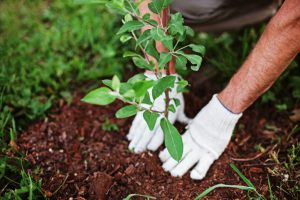Keansburg Tree Fertilization
Keansburg Tree Fertilization

Tree Fertilization Keansburg Company
Frontier Tree Company
At Frontier Tree Company we believe the care you give your new landscape plantings is just as important as the design and installation.
Frontier Tree Company Tree Fertilization Monmouth County NJ
Landscapes are expensive and are meant to display a little of your individuality to those who happen by. Hopefully, your landscape adds to the pride you feel with home ownership. Learning how to properly maintain your plants is the key to enjoying your landscape investment for years to come.
Price Quote Tree Fertilization Keansburg
Click on one of the below topics for detailed care and tips:
Watering
Mulching
Fertilizing
Weed Control
Pruning
Insect Weed and Disease Control
Ornamental Grasses
Perennials
Watering
Residential & Commercial Tree Fertilization Near Me Keansburg
Once our plants are installed, the watering becomes the owner’s responsibility. We cannot stress how important watering is – especially during the first full growing season of your plants.
Best Keansburg Tree Fertilization
It is very difficult to tell an owner or maintenance person how and when to water plants. The reason for this is that no two landscape situations are exactly alike. The best we can do therefore is to give some general guidelines to follow.
Recent Client Service Area: 07734
It is important to remember that a plant may be “killed with kindness” from over watering as easy as it may die due to lack of water. Check your plants each week from the first of March to the end of November. Try the “touch and feel” approach to check for watering. For best results check 4”-6” with your hand, underneath the mulch line to the ball of the tree.
How to Water TREES and SHRUBS
After the initial installation, check your plants each week, water plants thoroughly if natural rainfall is insufficient. Apply water to individual plants by placing the hose at the base or trunk of the plant, allowing the water to run at a slow trickle long enough to saturate the entire root zone. If the water tends to run off, it may help to go to another plant and then come back in a few minutes to complete the watering. After the first year, established plants should be watered every 3-4 weeks – June thru September. Maintaining a 3” layer of organic mulch greatly reduces water loss to evaporation. Please keep in mind, during dry and mild WINTERS, your evergreen plants will need some supplemental water. If your irrigation system has been turned off you may need to take some buckets of water out to your evergreen plants. The evergreens still have their foliage and water loss of the plant will occur as air movement pulls is out. This is why some WINTER watering may be essential in the success of your evergreen
SPECIAL SITUATIONS and EXCEPTIONS CONCERNING WATERING
To every set of rules of guidelines there are exceptions. The following list of special tips is included to help you adjust your watering methods to your specific soil type of plant types.
SOIL TYPE
Tree Health Nutrients Keansburg
The required frequency of watering will vary greatly according to soil types. Heavy clay soils tend to hold water and therefore need less water to sustain plants. Remember that it is just as easy to kill a plant by over watering as it is under watering. Use common sense! If a plant begins to show signs of weakening (yellow leaves or needles) and you know that it cannot possibly be due to lack of water, using your hand, dig into the soil around the ball and check and see if the root system is saturated with excess water. If it is, quit watering – your soil is not draining as fast as it should.
Frequency of watering also varies from season to season. Usually, watering is not as critical during spring and fall as it is during summer months (June – September). Here again, use your own judgment. Make sure, however, to water plants close to buildings or beneath overhangs where they receive little or no rainfall.
PLANT TYPES
Some plants simply do not like wet conditions under any circumstances. Probably the easiest plants to kill by over watering are those in the evergreen family. The list includes all Taxus varieties (Yews), most Pines, most Junipers, most Broadleaf Evergreens such as Rhododendron, Azaleas, Boxwoods, Holly Euonymus varieties, Oregon Grade Holly, and Pyracantha. A few others would include Bayberry, and most Flowering Ornamental Trees (especially Dogwoods). This is not to say that these plants necessarily prefer dry conditions, but they seem to be the severely affected by “water-logging”.
